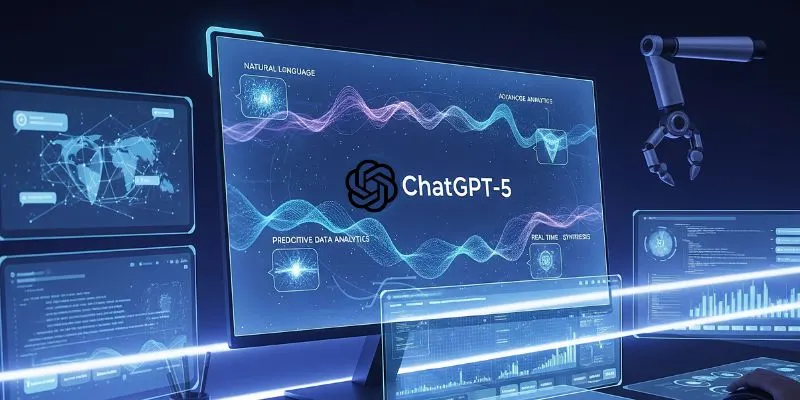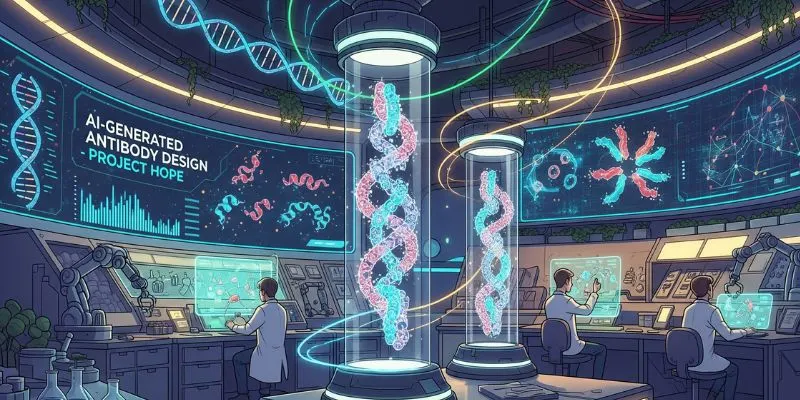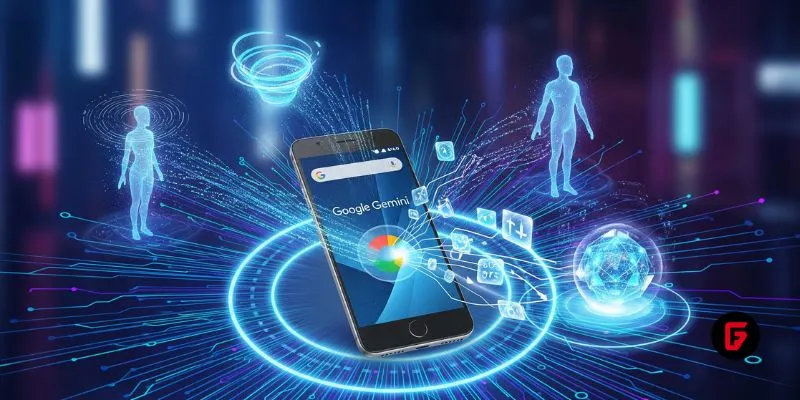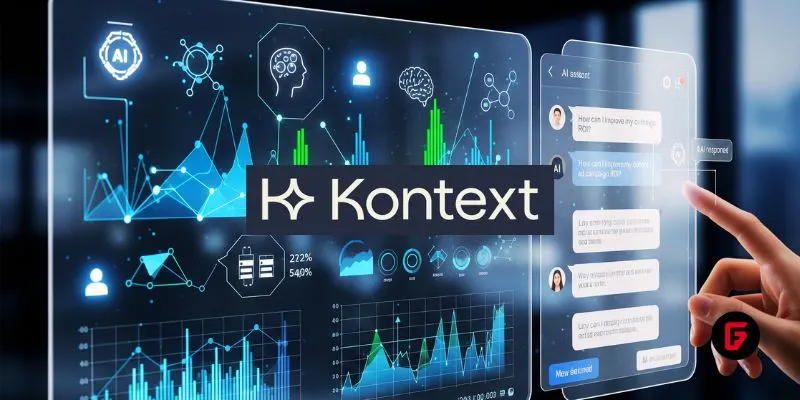By futureTEKnow | Editorial Team
In the relentless pursuit of improving healthcare and finding new treatments for diseases, the pharmaceutical industry has embraced a powerful ally: Artificial Intelligence (AI). This technology is transforming the way drug discovery is conducted, making the process faster, more efficient, and increasingly accurate.
AI is being used in drug discovery by harnessing the power of machine learning algorithms to analyze vast datasets of biological and chemical information, making the drug development process more efficient and cost-effective.
One unique way AI does this is through the identification of potential drug candidates from unconventional sources. For example, AI can analyze data from traditional medicine systems, such as Ayurveda or Traditional Chinese Medicine, to discover novel compounds with therapeutic potential that might have been overlooked by traditional drug discovery methods.
Artificial intelligence, including machine learning and deep learning algorithms, is being applied to various stages of drug discovery:
AI-powered machine learning algorithms analyze complex genomic and proteomic datasets to pinpoint precise drug targets, revolutionizing how researchers discover potential therapeutic interventions for challenging diseases.
Cutting-edge AI systems can rapidly screen millions of chemical compounds, predicting their potential therapeutic efficacy, safety profiles, and molecular interactions with unprecedented speed and accuracy.
Sophisticated machine learning models forecast intricate drug-target interactions, enabling researchers to understand potential molecular mechanisms and anticipate side effects before expensive laboratory testing begins.
AI-driven algorithms generate strategic molecular modifications, enhancing lead compounds’ effectiveness, improving bioavailability, and reducing potential toxicity risks with data-driven precision.
Artificial intelligence analyzes extensive medical databases to identify promising alternative uses for existing drugs, dramatically accelerating drug development timelines and reducing research and development costs.
The integration of AI in drug discovery offers numerous advantages:
AI significantly accelerates the drug discovery process, potentially reducing development timelines by up to 80%. This rapid acceleration enables pharmaceutical companies to bring novel treatments to market faster, addressing urgent medical needs more efficiently.
By optimizing various stages of drug discovery, AI can lead to cost savings of up to 70% per clinical trial. This dramatic reduction in expenses allows for more resources to be allocated to promising drug candidates, increasing the overall efficiency of pharmaceutical research.
AI algorithms analyze individual patient data, including genetic profiles and medical histories, to tailor treatment plans and custom-made drugs. This personalized approach minimizes adverse reactions and maximizes treatment efficacy, potentially transforming patient care in the pharmaceutical industry.
AI-based approaches can accurately predict interactions between novel drug pairs by analyzing large datasets of known drug interactions. This capability is crucial for developing safer combination therapies and minimizing risks in multi-drug treatments, especially in the context of personalized medicine.
AI enables high-fidelity molecular simulations that can be run entirely on computers, reducing the need for costly physical testing. These systems can also predict key properties such as toxicity, bioactivity, and physicochemical characteristics of molecules, streamlining the early stages of drug development.
AI can make drug discovery faster, more efficient, and less costly. However, there are several challenges to using AI in drug discovery, including:
AI algorithms require vast amounts of high-quality, standardized data to make accurate predictions. However, obtaining comprehensive and reliable data from clinical trials, genomics, and other sources in drug development is often challenging. The limited availability of suitable data and issues with data consistency can significantly affect the accuracy and reliability of AI-driven results.
The use of AI in drug discovery raises important ethical questions, particularly regarding fairness and bias. If training datasets are biased or unrepresentative, AI algorithms may produce inaccurate or unfair predictions, potentially leading to skewed drug development processes that could disproportionately affect certain demographics.
The rapid advancement of AI technologies has outpaced the development of clear regulatory guidelines for validating and approving AI-driven drug development processes. This regulatory gray area creates uncertainty and can slow the adoption of AI in pharmaceutical research.
Many AI models function as “black boxes,” making it difficult to explain their decision-making processes. In drug development, understanding the reasoning behind AI-generated predictions is crucial for gaining regulatory approval and building trust among stakeholders.
Implementing AI technologies in drug discovery requires significant financial investment and specialized expertise. The high costs associated with AI implementation and the need to build in-house capabilities can be prohibitive, especially for smaller pharmaceutical companies and research institutions.
Artificial Intelligence is a game-changer in the pharmaceutical industry, with a remarkable potential to reshape drug discovery and development. As AI-powered tools become more sophisticated, we can anticipate even more remarkable discoveries and groundbreaking treatments on the horizon.

Traditional Medicare will pilot AI-assisted prior authorization in 2026 across six states, focusing on high-risk outpatient services. Clinicians retain final say, but incentives and access concerns loom as CMS tests fraud reduction and “gold card” exemptions. Here’s what providers and patients should know.

OpenArt’s new “one-click story” compresses scripting, visuals, and edits into ready-to-post short videos—fueling viral growth and a fresh IP debate. We break down how it works, adoption signals, what’s next (multi-character, mobile), and practical guardrails creators and brands should follow to stay original and compliant.

OpenAI’s o3 swept the Kaggle AI chess tournament, defeating xAI’s Grok 4–0. The victory fueled the intense rivalry between Altman and Musk, reshaping AI benchmarks.

Pinterest’s CEO confirms that fully agentic AI shopping is years away, as the platform invests in AI-powered tools to enhance discovery, inspiration, and personalized shopping experiences for millions.

Shopify’s new AI shopping tools are transforming e-commerce, letting agents and chatbots deliver smooth, personalized shopping and checkout experiences across platforms. Learn how these innovations reshape online retail.

Meta has acquired WaveForms AI, a startup pioneering emotion-detecting voice technology. Learn what this means for Meta’s AI voice ambitions and the future of AI audio.

Tracelight is revolutionizing financial modelling for finance professionals with AI-powered Excel tools that automate complex tasks, reduce errors, and unlock new analysis capabilities. Learn how this next-gen solution changes the future of spreadsheets.

Microsoft rolls out GPT-5 across its Copilot suite, integrating smarter AI for enterprise and personal users. Discover new features, free access, and what sets this launch apart.

OpenAI’s GPT-5 is now live for all ChatGPT users. It brings faster, smarter AI with improved reasoning, expanded context, and safer outputs—marking a major leap in generative technology.

Chai Discovery’s $70M funding ushers in a new era for AI-powered antibody design, promising faster, more successful drug discoveries with its breakthrough Chai-2 model.

Discover how Google’s Gemini generative AI is revolutionizing Android—making your phone smarter, faster, and truly personal with next-gen features and privacy-first innovation.

Kontext lands $10M seed round to fuel its generative AI advertising platform, enabling brands to deliver personalized, context-rich real-time ads in AI applications and chatbots.
To provide the best experiences, we use technologies like cookies to store and/or access device information. Consenting to these technologies will allow us to process data such as browsing behavior or unique IDs on this site. Thanks for visiting futureTEKnow.